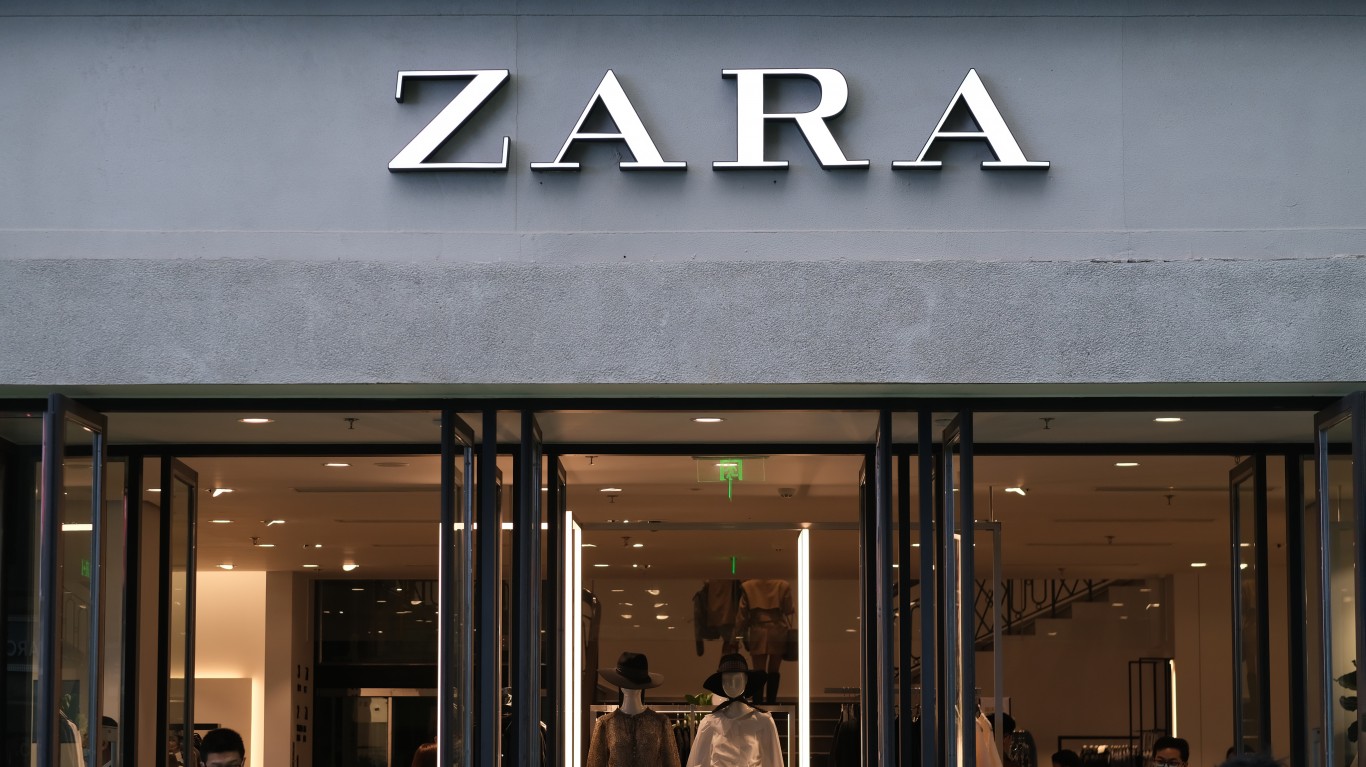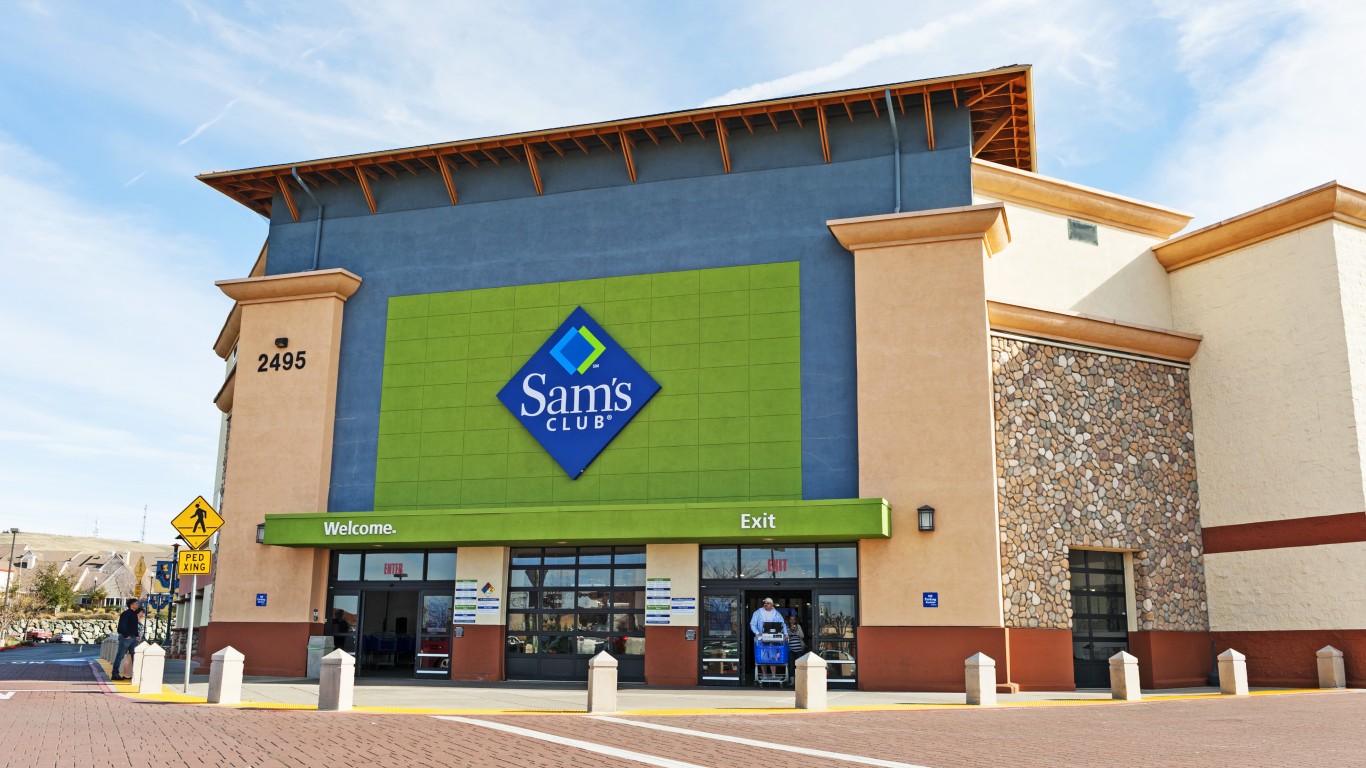
Sam’s Club is great…but not for everything. These large warehouse stores are found in most states (although notably not in NYC) and are great for buying certain items in bulk. There are always deals to be found at the big box stores, but there is the rare case where a deal isn’t always the best deal.
You can find pretty much anything here in super-sized quantities, from fresh produce and deli items to furniture and electronics. Clothing racks display packs of t-shirts and underwear by the dozen. At checkout, carts are filled to overflowing with enough non-perishables to last months. For businesses or big families, the appeal of Sam’s Club is clear – buy in bulk and save.
But not all of the products found at Sam’s are as good as they are in other warehouse stores, or even standard grocery stores. Quality of some products is just one reason why it’s not always the best place to shop for a few key items.
Whether you’re an individual or a company buying in bulk, there are some things you should avoid when you shop at Sam’s Club – let’s find out what they are! (If you often shop online, you may find it helpful to know about the 10 things you should never buy on Amazon.)
Methodology:
To compile a list of 10 items you should never buy at Sam’s, 24/7 Tempo reviewed online shopping resources, public forums for food quality and taste, and editorial discretion (some of our own experience). Some of the following items are down to opinion, although we did our best to only select items that seem to have a wider consensus than just our own opinion.
1. Large Containers of Perishable Products
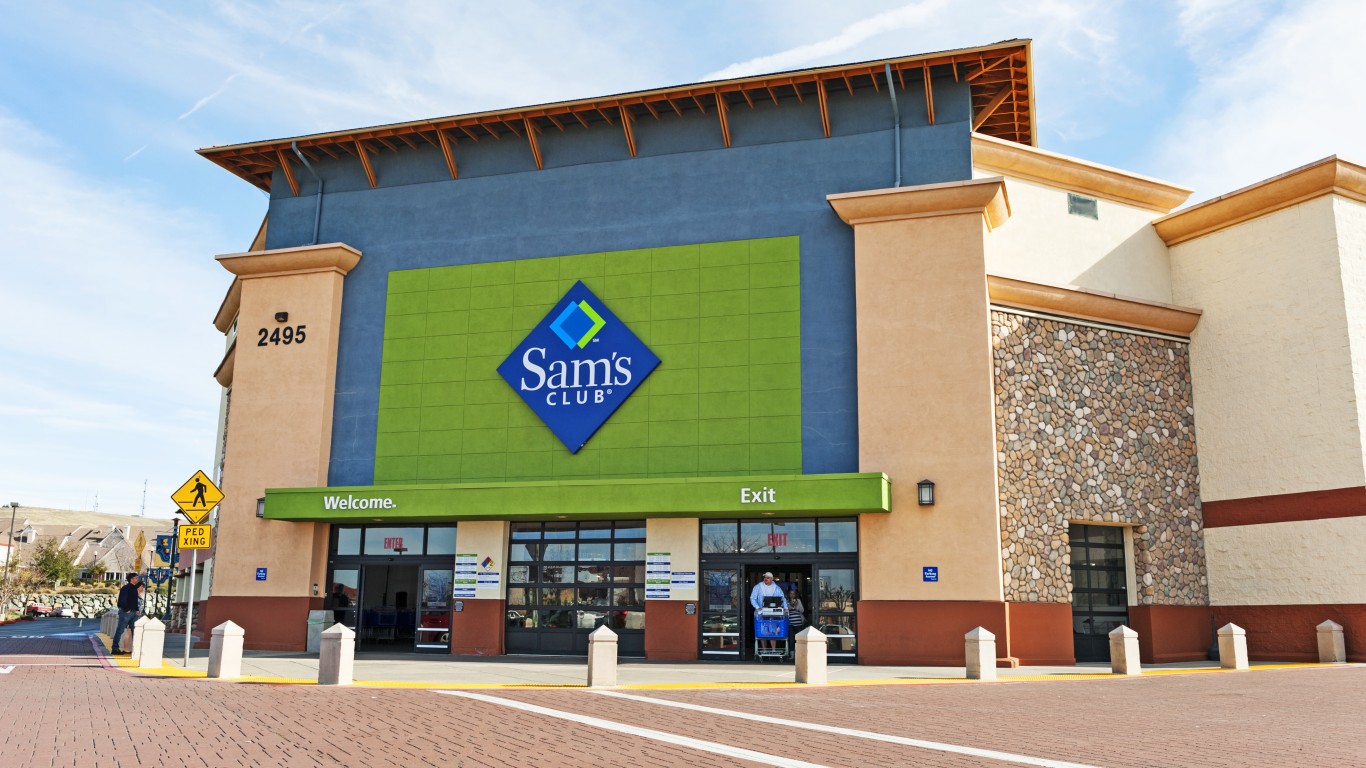
Here’s a tip for individual shoppers or those shopping for average-sized families: don’t get single containers that are huge. It’s usually better to have a few normal-sized items instead of a single container, even if both equal the same amount of product. This is especially true when talking about food.
For example, if you buy a box of eight cans of black beans, you can use each can as needed, without having to open the others. If you buy one huge container of beans, the moment you open it, a timer starts on freshness. For individuals and most families, the flexibility to use products as needed is better than the waste that can easily occur from large product containers.
Other examples of this include condiments like ketchup and mayo, salsas or dips, or cooking supplies. Just be aware of your needs, and don’t waste food because of a “deal”!
2. Brand-Named Clothing
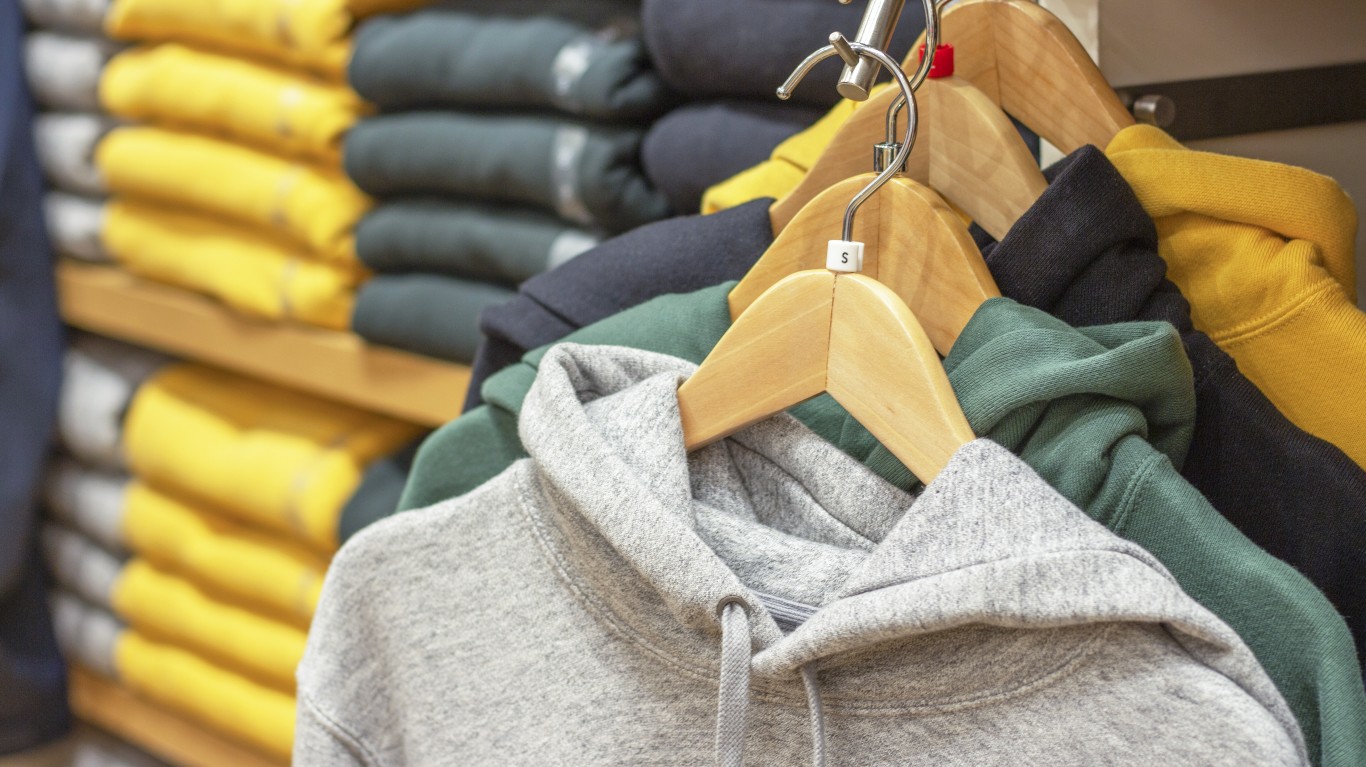
The middle of most membership warehouses (Costco and Sam’s Club) are made up of large sections dedicated to clothing. Here’s the deal: the clothing these warehouse stores are putting out, even if they are brand name, are usually cheaper and lower quality than standard consumer counterparts. That isn’t to say that you can’t buy clothing from Sam’s, but it does mean that there is usually a noticeable quality difference when compared to retailers. Longevity and brand quality don’t apply in the same way here. Essentially, buying brand-name clothing from places like Sam’s isn’t a good idea because they aren’t delivering the same quality you would find in other stores.
3. Fresh Produce in Bulk

This is another group of items that, as an individual, probably just isn’t a good idea to buy. Produce easily goes bad, and often, the quantities that Sam’s is selling it in are not great for individuals or small families. In situations where it’s possible to just buy select amounts of produce at Sam’s, this isn’t a big deal. However, many items aren’t available in that manner and require you to purchase small palettes or nets of food. If you own or shop for a business, however, this particular section doesn’t apply.
4. Organic or Natural Products

Generally, Sam’s doesn’t have a large selection of organic or all-natural products when compared to other stores. This isn’t necessarily a product we would avoid, but we wouldn’t go to Sam’s to buy them specifically. In the same vein, Costco is known to have more organic or all-natural products. Outside of warehouse stores, the selection really opens up. Local grocery stores and medium-sized chains will usually have a greater variety of products, and since organic and all-natural are a smaller niche, they tend to carry them more often.
5. Food Court Food
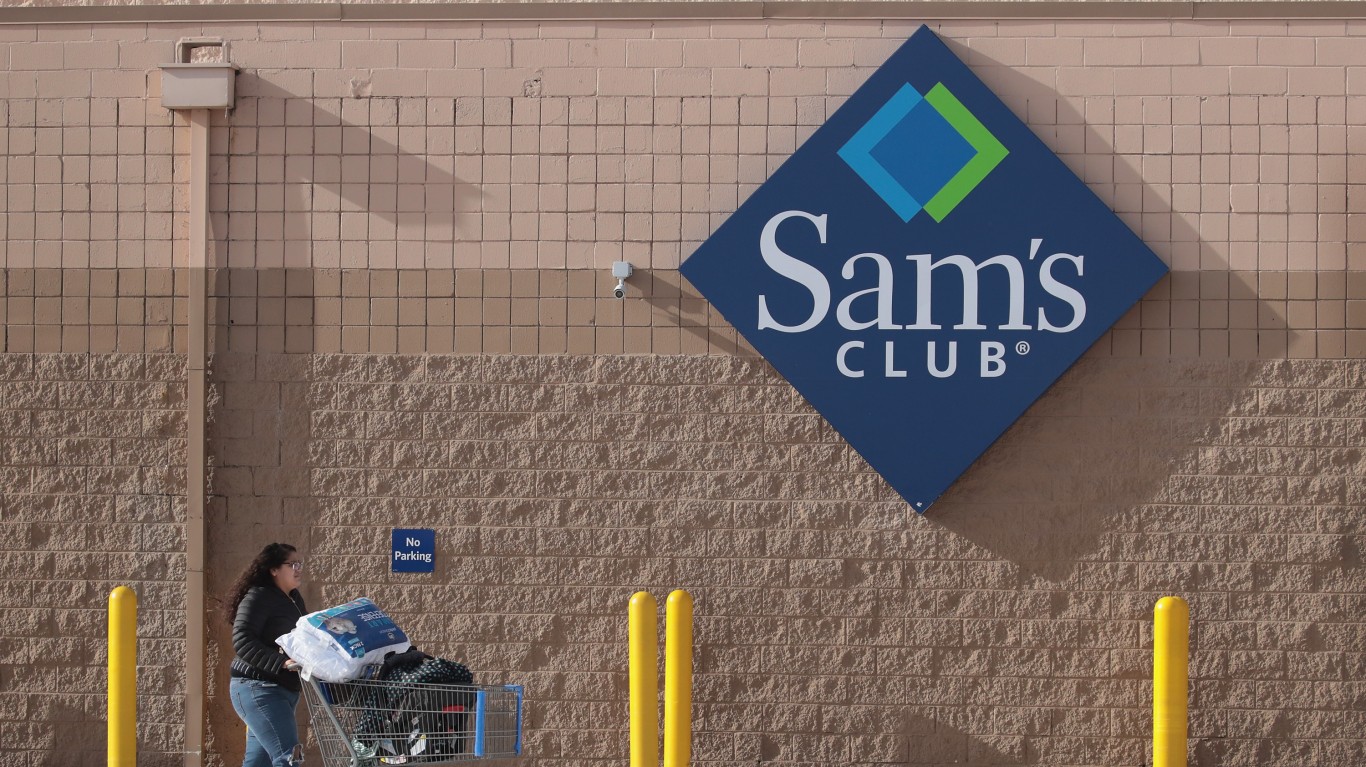
Let’s be clear: Sam’s food court food isn’t bad. That being said, it just doesn’t carry the same weight as some other retailers do. Chicken Bake, anyone? In fact, Sam’s has a cheaper hotdog/soda deal, cheaper whole pizzas, and even a pizza pretzel, but when it comes to customer favorites, Costco, for example, just has higher marks a lot of the time. If you get excited about warehouse store food, Sam’s can provide it, but Costco is famous for a reason.
6. Electronics

Most of the reasons that we don’t recommend using Sam’s for electronics is due to their policies. Recently, they’ve changed their very lenient returns policy and tightened it to 90 days, plus it needs to have issues or defects. Also, the selection at Sam’s isn’t as large when compared to other electronics-specific options, notably Best Buy or Newegg online. Plus, Best Buy and Newegg usually offer some sort of price matching. The main exception for this is during major holiday sales like Black Friday since large stores will give huge discounts on things like TVs for a limited time.
7. Cheesecake

Look, we’re just reporting what we’ve heard, but apparently, the variety cheesecake at Sam’s isn’t a good deal compared to the nearly identical cheesecake at Walmart (in either price OR taste). Also, if you’re looking for cheesecake specifically, there are some better options out there, including Cheesecake Factory offering a quality version through Target for only a little more.
8. Bacon

Bacon is one of the things that Kirkland Signature just does really well. Again, Sam’s isn’t bad, but the Costco brand bacon is well-known for its quality, taste, and value, and if you are looking for bacon in bulk, it’s probably a good idea to favor it over Sam’s. Like most things, there isn’t as much of a difference as people would have you believe, but if breakfast foods are a big thing for your household, bacon specifically, Sam’s may not be the move. (Read about the one item you should buy in bulk and why.)
9. Books

If you’re buying books, it’s almost always going to be cheaper to do it online in a digital format. Companies like Amazon have really cornered the market on this, and with technology like Kindle, it’s hard to justify the price of getting a physical book unless having a copy is a must-have for you. (Read why Amazon is crushing its main competitor.)
Even when looking for physical copies, getting them from libraries or simply ordering them online is often going to be the cheapest (or free) option. Additionally, you can instantly look up book prices on Amazon while at a store like Sam’s, so it’s always easy to check and see if it’s worth it.
10. Specialty Coffee

Finally, we have coffee. There are levels to coffee, to be sure. At the bottom (no offense), we have brands like Folgers and Maxwell House, creating pre-ground shelf-stable stuff that is going to taste like motor oil and last forever in your pantry.
For people who really like that sort of thing, Sam’s is totally fine. If you’re looking for something a little more elevated, however, Sam’s isn’t going to give you the selection you are probably looking for. Their whole-bean options (you should always buy whole-bean if you are looking for quality coffee) are extremely limited, and none of them are especially great.
The real sweet spot for Sam’s is when it comes to pods. Brands like Nespresso and K-Cup are shelf stable, and when you buy them in bulk, it makes sense to look at a warehouse store like Sam’s. If you want really good coffee, heading out to your local coffee shop or buying from a local roaster is almost always going to be better.
Want to Retire Early? Start Here (Sponsor)
Want retirement to come a few years earlier than you’d planned? Or are you ready to retire now, but want an extra set of eyes on your finances?
Now you can speak with up to 3 financial experts in your area for FREE. By simply clicking here you can begin to match with financial professionals who can help you build your plan to retire early. And the best part? The first conversation with them is free.
Click here to match with up to 3 financial pros who would be excited to help you make financial decisions.
Thank you for reading! Have some feedback for us?
Contact the 24/7 Wall St. editorial team.


